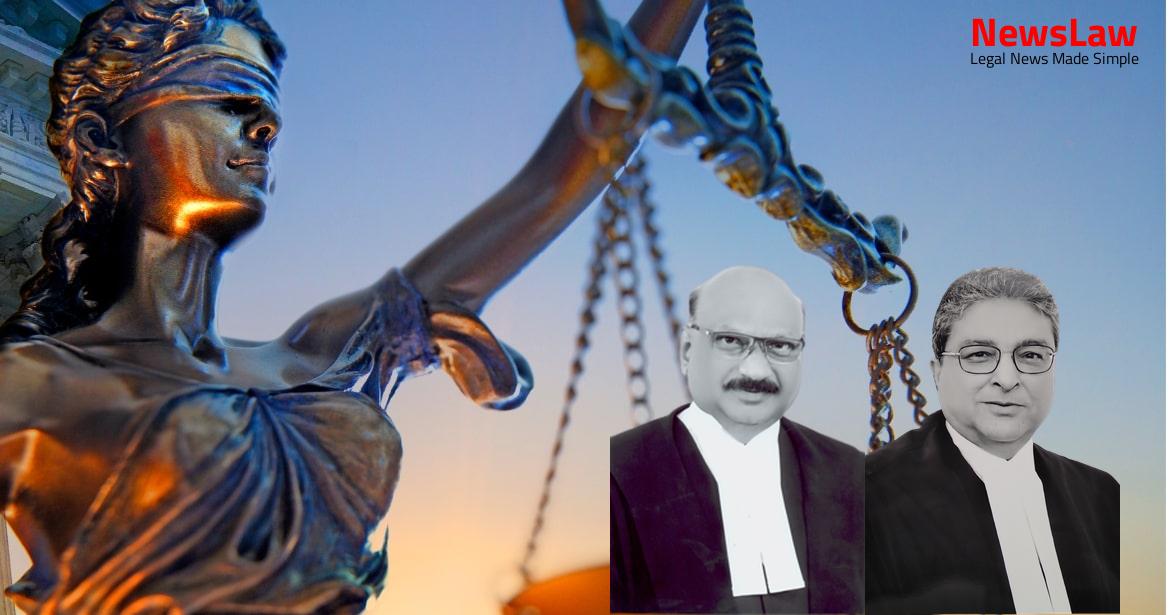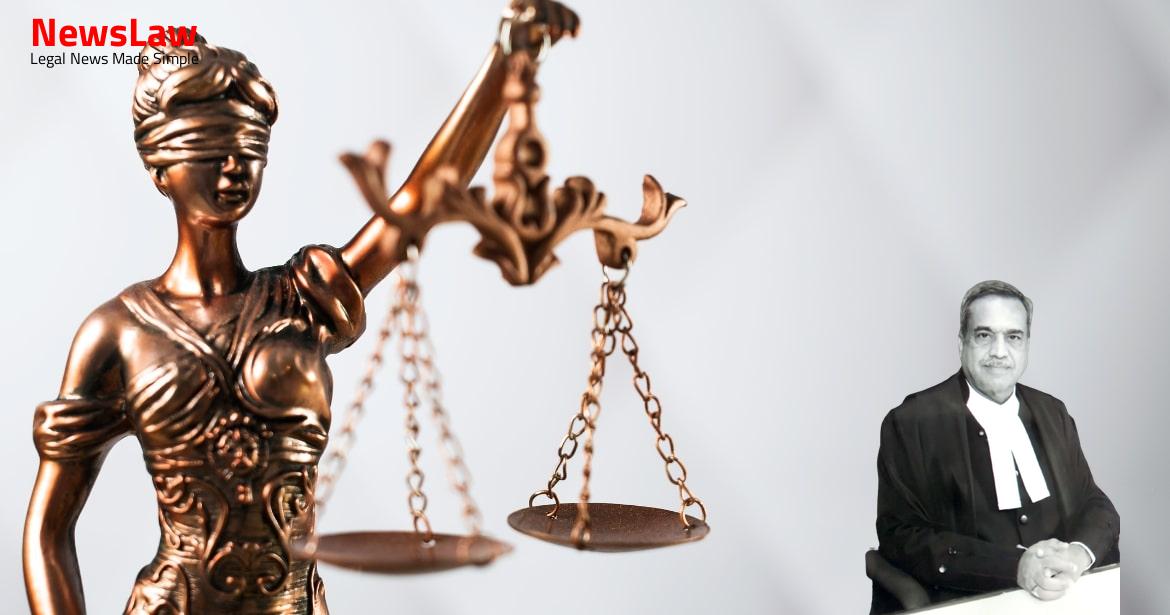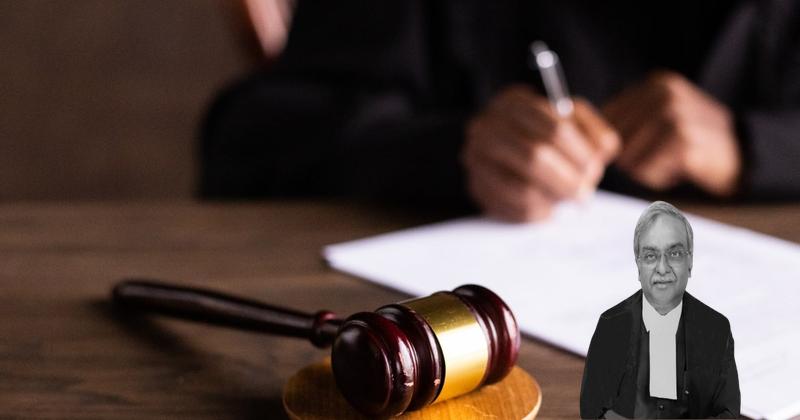In a recent legal case, the court delved into the intricacies of the Court Fees Act concerning refunds for settlements. The analysis focused on the interpretation of the Act to ensure fairness and efficiency in resolving disputes. The court’s thorough legal analysis emphasized the need for a purposive and progressive interpretation of the law to uphold the intended purpose of encouraging settlements. Let’s explore the insights provided by the court in this significant case.
Facts
- Respondent No.1 purchased two vehicles under hire purchase agreements with Respondent No. 2, with Respondents 3 and 4 as sureties.
- Original Suits were filed against Respondents 1, 3, and 4 for non-payment of instalments.
- Respondent No.1 filed Civil Miscellaneous Petitions seeking refund of court fees deposited in Appeal Suits.
- Despite orders granting permission to withdraw the Appeal Suits and directing refund of court fees, the Registry orally refused the refund citing relevant rules.
- Respondent No.1 sought permission to withdraw the Appeal Suits and refund of court fees before the High Court.
- The Original Suits were partly decreed by the Munsif Court and District Court, leading to the filing of Appeal Suits by Respondent No.1 before the High Court.
- An out-of-court settlement was reached between the parties during the pendency of the appeal suits.
- The High Court allowed Civil Miscellaneous Petitions and directed the Registry to refund the full court fee to Respondent No 1.
- The High Court considered Section 69-A of the Tamil Nadu Court Fees and Suit Valuation Act, 1955 which pertains to refund on settlement of disputes under section 89 of the Code of Civil Procedure.
- The High Court found that differential treatment between two similarly situated persons would violate Article 14 of the Constitution.
Also Read: Curbing Frivolous Litigations: Judicial Analysis
Arguments
- Petitioner challenges High Court’s judgment
- Petitioner argues Section 69-A of the 1955 Act only applies when Court refers parties to alternative dispute settlement
- Petitioner contends refund of court fees not applicable if parties choose out-of-court settlements without Court intervention
Also Read: Interpretation of Insurance Policy Provisions in Liability Determination
Analysis
- Courts should interpret the Court Fees Act strictly, with any ambiguity benefiting the party and not the state.
- The High Court’s view in the judgment has been affirmed by other states.
- The importance of private negotiations between parties is emphasized alongside arbitration and mediation.
- Section 69-A should incentivize all out-of-court settlement methods, not just those specified in Section 89 of the CPC.
- The purpose of Section 89 is to divert civil disputes towards alternative dispute resolution processes to ease the backlog in the Indian judiciary.
- Private settlements outside of the modes in Section 89 should not be excluded from the benefits of Section 69-A of the 1955 Act.
- Interpreting the statute narrowly could lead to unjust outcomes for parties who settle disputes privately.
- The main objective of Section 89 and 69-A is to encourage settlements by providing a refund of court fees.
- A strict construction of the terms of Section 89 and 69-A may not include private negotiations, but participants in such settlements should still receive the same benefits.
- A purposive and progressive interpretation is required considering the huge pendency of cases in courts.
- The Legislative intent of Section 16 of the Court Fees Act is broad enough to encompass settlements at any stage of proceedings.
- Section 89 must be understood in light of the excessive litigation burden on civil courts and the need for speedy justice.
- Appeal suits are considered a continuation of original suits and fall under the ambit of ‘suits’ in Section 69-A.
- The intention of the Legislature is primarily derived from the object and words used in the relevant provisions.
- Sections 89 of CPC and Section 16 of the Court Fees Act aim to encourage settlements due to the increased number of cases.
- Courts should be cautious of parties using long-drawn trials or frivolous litigations as a guise to seek court fee refunds.
- The High Court emphasized the need to interpret the provisions regarding settlement liberally and in a manner that serves their intended purpose.
- The Court noted the importance of the beneficial intent behind the provisions.
- Section 89 of the CPC was considered, focusing on the settlement of disputes outside the Court.
- The Court stated that when possible, elements of a settlement acceptable to the parties should be formulated by the Court and presented for their observations.
- Courts play a role in interpreting laws and ensuring the spirit of the legislation is upheld.
- Purposive interpretation is favored over literal interpretation, especially when literal interpretation may lead to absurd outcomes.
- The policy behind the provisions in question is to reduce the number of cases through settlement.
- A narrow interpretation of the provisions would lead to unjust outcomes and defeat the purpose of the provisions.
- Court has the duty to creatively interpret legislation to achieve the true purpose of the enactment.
- Various High Courts have recognized the need for creative interpretation to avoid injustice or absurdity.
- The principle of seeking refund of court fees applies when disputes are settled with or without court intervention.
- Refund of court fees serves as an economic incentive for parties to explore alternative dispute resolution methods.
- The purpose of the provisions is to reward parties who opt for conciliatory dispute settlement mechanisms.
- Claiming a refund of court fees is meant to acknowledge and encourage parties who opt for settlement methods that save time and resources of the Court.
- The High Court’s interpretation of Section 89 of CPC and Section 69-A of the 1955 Act as liberal was deemed correct.
- It is in the best interest of the Registry/State Government to allow Respondent No 1’s claim.
- While losing a one-time court fee initially, the Registry/State Government will ultimately save on expenses and opportunity costs from ongoing litigation.
- It is puzzling that the Petitioner is vehemently opposed to granting this benefit.
Also Read: Duty of Care in Bank Locker Operations
Decision
- Petitioners directed to refund court fee deposited by Respondent No 1 within six weeks.
- Section 89 of CPC and Section 69-A of the 1955 Act extend to all methods of out-of-court dispute settlement legally arrived at.
- Private settlement memo filed before High Court allows for court fee refund to appellant, Respondent No 1.
- Petitions dismissed, High Court’s judgment dated 8.01.2020 upheld.
Case Title: THE HIGH COURT OF JUDICATURE AT MADRAS Vs. M. C. SUBRAMANIAM (2021 INSC 98)
Case Number: SLP(C) No.-003063-003064 / 2021



